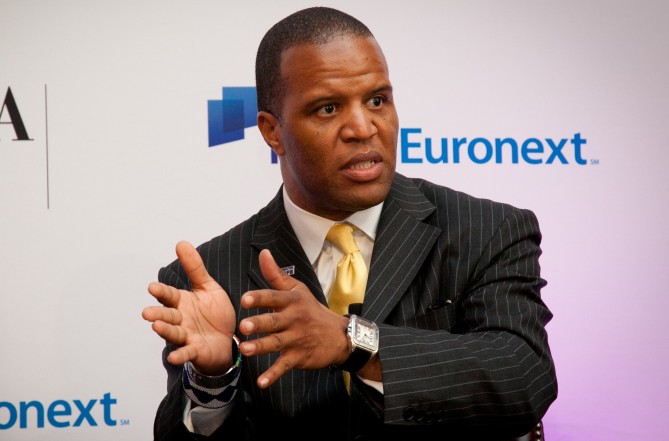I just finished radio taping a segment for the John Bachelor Show on ABC Radio (a national show), with a person I really respect, Ms. Diane Brady, and dealing with economic policy, my role as the new chairman of the Subcommittee on the Underserved and Community Empowerment for President Obama and the US President's Advisory Council on Financial Capability.
We covered, amongst other things, my view on what's coming out of Washington, DC these days, and specifically the view that this crisis was somehow created by poor people, and you have to punish the poor to get them to take charge of thier lives.
I said a lot of what I believe on the show, which will air later tonight, but here are a couple additional points of focus:
- This crisis was NOT created by poor people. The fact is that more middle class white men received subprime loans that kicked off the global econoic crisis, than all poor people combined in the United States. Furthermore, poor people do not have 20 trillion dollars to lose, which is how much wealth evaporated in this crisis in the U.S. alone. This was and remains a middle class crisis. Well educated people for the most part, who bought too much house, and asked the wrong questions; asking what the payment was when they purchased a home, and not what the interest rate was.
Anyway, more from me later, including my vision on and around the new Subcommittee for President Obama. Let me know what you thikn of the show.
John Hope Bryant is a thought leader, founder, chairman and CEO of Operation HOPE and Bryant Group Companies, Inc. Magazine/CEO READ bestselling business author of LOVE LEADERSHIP: The New Way to Lead in a Fear-Based World (Jossey-Bass) the only African-American bestselling business author in America, and is chairman of the Subcommittee for the Under-Served and Community Empowerment for the U.S. President’s Advisory Council on Financial Capability, for President Barack Obama. Mr. Bryant is the co-founder of the Gallup-HOPE Index, the only national research poll on youth financial dignity and youth economic energy in the U.S. He is also a co-founder of Global Dignity with HRH Crown Prince Haakon of Norway and Professor Pekka Himanen of Finland. Global Dignity is affiliated with the Forum of Young Global Leaders and the World Economic Forum.

